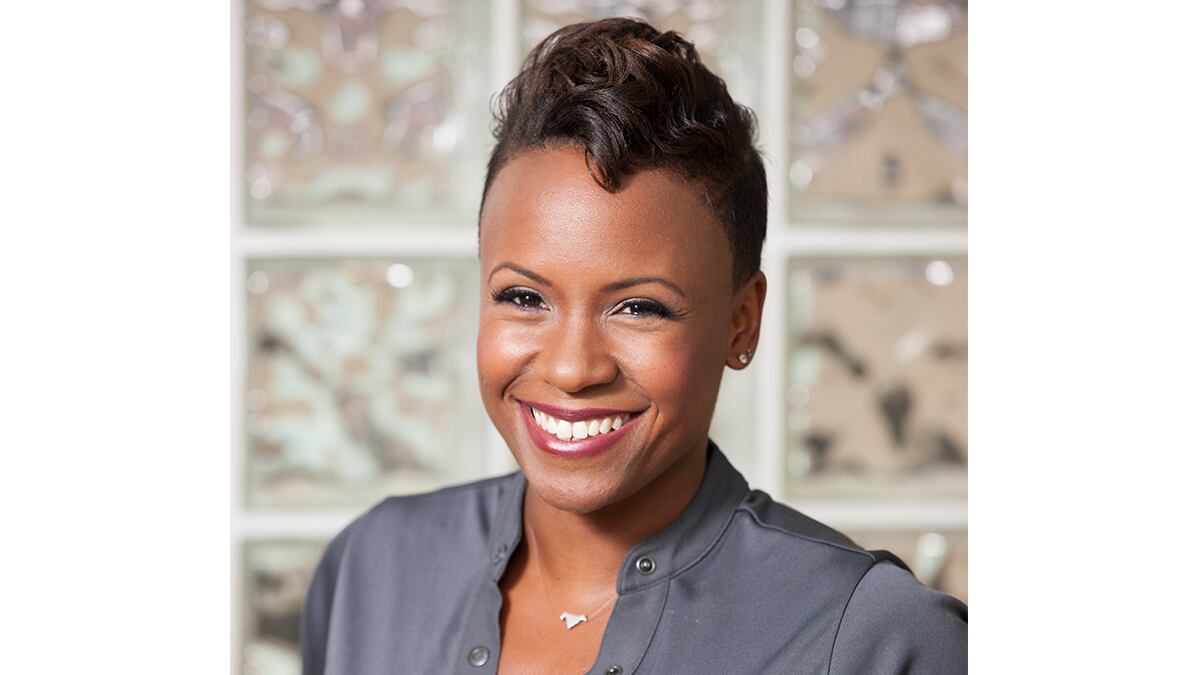Stephanie Lampkin claims she's conservative when it comes to taking risks, but what she does at work and play says otherwise.
She spent much of her youth ski racing in Pennsylvania, where the ice is as hard as the oak trees along the trail. Then, she trekked to Niseko in Japan to ski bottomless powder, which doesn't come easily to mid-Atlantic skiers. Most recently, she spent a week mountain biking in Moab, Utah, where the slick rock challenges even the best cycle-bro rider.
"I'm an outdoorsy person," Lampkin says. "I always have been."
None of that compares to what Lampkin does during the week. In 2014, she started a company called Blendoor that is trying to banish bias from the job market, where it's insidious, institutionalized and economically awful for women and people of color.
Study after study show that people with nonwhite-sounding names don't get as many calls for interviews. Companies are more than twice as likely to interview minority applicants if they "whiten" their résumés, changing their names slightly to remove ethnic or foreign spellings, according to University of Toronto professor Katherine DeCelles.
Lampkin's solution: Let applicants submit résumés without names, ages or photos. On Blendoor, only a candidate's qualifications appear. Nothing more.
Lampkin, who is Black, knows something about hiring discrimination, even with a bachelor's degree in engineering from Stanford University and an MBA from the MIT Sloan School of Management.
In 2013, she interviewed for a job at Google after working at Lockheed Martin, Northrop Grumman, Microsoft, and TripAdvisor. Google passed on Lampkin, and later released its dismal diversity numbers. "I figured I could build a solution that would help them to connect with diverse talent in a more scalable way," Lampkin says. "And that's how Blendoor got started."
Blendoor was her second startup. Her first was Hoowenware, a travel management site that took the headache out of organizing school trips, ski trips, spring breaks, and weddings.
Trying to raise money, she learned that the funding process was even worse. "I thought hiring was bad," Lampkin says. "Venture is way worse when it comes to bias."
Lampkin persisted and opened Blendoor in San Francisco (with funding coming from Portland's Elevate Capital, a venture fund that targets "underserved" entrepreneurs—women and minorities mostly.)
Just as she got rolling, COVID-19 hit. The economy, and hiring, came to a halt. Then, the killings of George Floyd and Breonna Taylor, and the rise of the Black Lives Matter movement, forced a new racial reckoning. Companies called Blendoor to ask for demos of its system.
"It's been a bit of a roller coaster, honestly," Lampkin said, who will be speaking at December's TechfestNW about how technology can help remedy bias.
Lampkin, 36, rolled out a new product: the BlendScore. It's like a credit score, but it measures a company's efforts at diversity and inclusion. Blendoor determines the score and tells companies how to do better. Scores for the 200 publicly held companies that she has included in BlendScore are available on Blendoor's website.
While the world reels amid COVID and political strife, Blendoor is doing fine. The 10-employee company has about 120 corporate clients and some 1 million job seekers using the platform. In many ways, the world is coming to Lampkin. More companies are seeing the value of a diverse workforce. In his 2004 book The Wisdom of Crowds, then-New Yorker writer James Surowiecki tells readers that the worst decisions are very often made by the most homogeneous groups. Think: old white guys on a corporate board.
In a true sign of the times, Goldman Sachs CEO David Solomon said in January that the investment bank wouldn't help companies go public unless they had at least one "diverse" board member, "with a focus on women." In the past four years, Solomon said, initial public offerings performed "significantly better" if the company had at least one woman director.
Blendoor is here to help, Lampkin says. "I won't call it the solution," she says. "It's hard to undo centuries of systematic racism and sexism."
But she's chipping away at it anyway, with welcome results. One would expect no less from someone who's willing to ski ice, ride slickrock, and pitch Silicon Valley venture capitalists who for so many years declined to fund anyone who didn't look a lot like themselves.
Lampkin, along with many other fantastic leaders, will be speaking at TFNW, which this year is going virtual on Dec. 2, 3 and 4. For more information, go to techfestnw.com.

